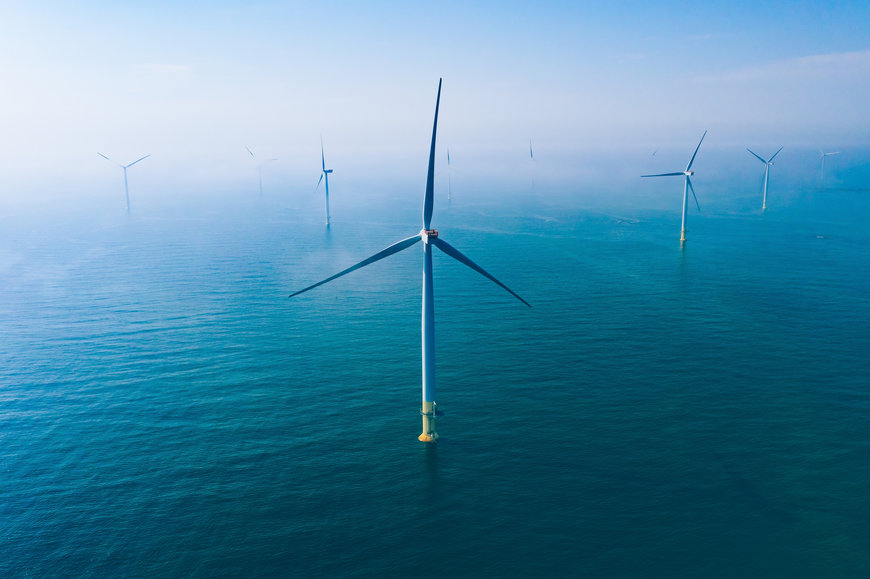www.ptreview.co.uk
01
'23
Written on Modified on
NSK selected for large-scale offshore wind turbine research project
NSK is announcing its selection as part of a major research project funded by the Japanese Government's New Energy and Industrial Technology Development Organization (NEDO). The project will pursue research that enables the rapid large-scale deployment of floating offshore wind turbines in Japan.
The ambition of the project is to research and develop technology that evaluates the wake effect phenomenon in floating wind turbines. Aside from NSK, key project members include Kyushu University (Multiscale Offshore Wind Research Division), Toshiba Energy Systems Corporation and Hitachi Zosen Corporation. Professor Takanori Uchida of Kyushu University will lead the project.The government of Japan has set a goal of achieving carbon neutrality by 2050, with offshore floating wind turbines expected to provide a notable contribution. However, there are specific challenges to overcome, including a phenomenon known as the wake effect, which occurs downwind of turbines during blade rotation. In large-scale offshore wind farms comprising of numerous turbines, wake effect causes negative outcomes such as greater turbulence. In addition, there is a reduction in electricity generation on the downwind side and an increase in the load acting on the turbines.
To deliver large-scale offshore wind farms in Japan as quickly and appropriately as possible, among the most vital tasks is developing technology to help understand and precisely predict the wake effect. It is also of paramount importance to establish innovative and optimal design methods for Japan's geographical context.
Taking place in a large wind tunnel facility at Kyushu University, researchers have several objectives, including: to comprehend the wake effect unique to floating wind turbines and their mutual interference phenomena; to develop technology for their prediction and evaluation; and to set out the future pathway for technology development with an eye toward industry-academia collaboration. The wake effect in floating wind turbines is mostly unstudied, so the project team expects the research to solve technical issues for large floating offshore wind farms and make a significant contribution to enabling their introduction at scale.
As part of the project’s research, NSK aims to enhance the reliability of bearings for wind turbines by understanding the attributes of load changes acting on turbines as a result of the wake effect, thereby supporting more widespread adoption of wind power generation. The NSK Group is actively promoting ESG management and will pursue opportunities for business growth and contribute to a sustainable society by leveraging technological capabilities that contribute to global environmental conservation.
1) To help optimise wind energy applications, NSK offers a range of bearing solutions that include hybrid and roller types. Photo: nblx/Shutterstock


